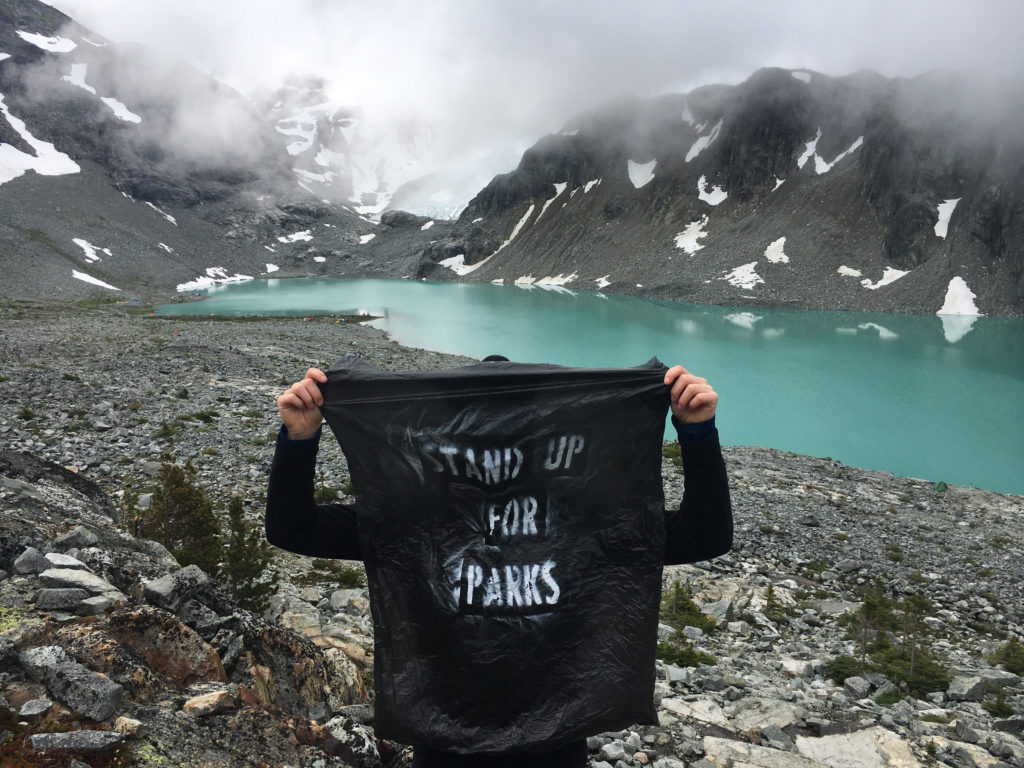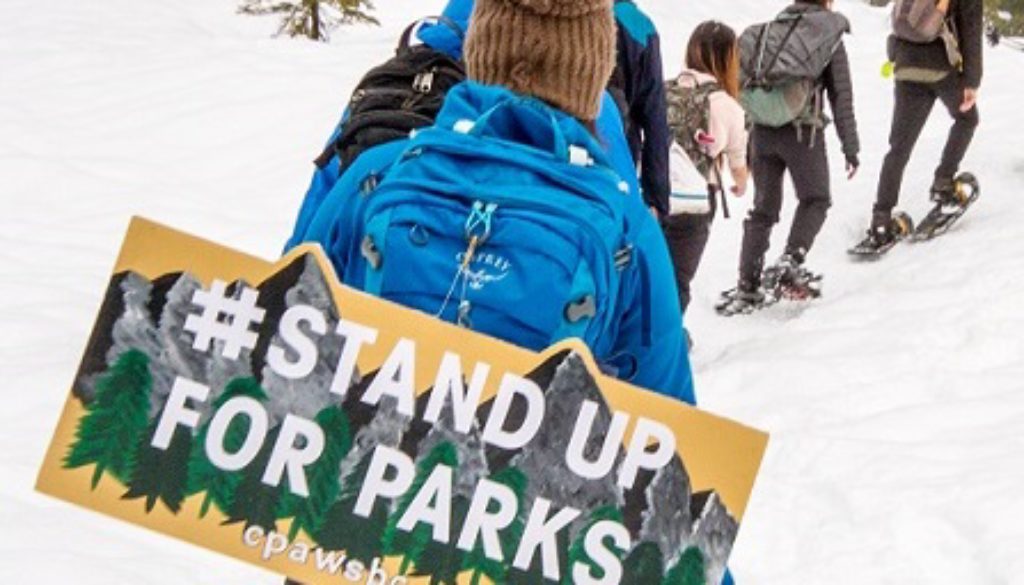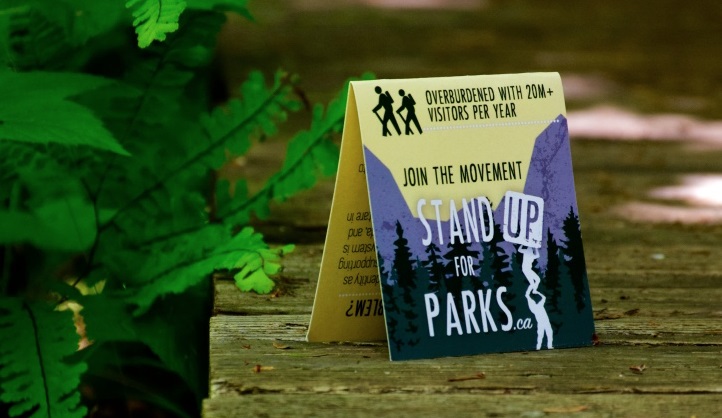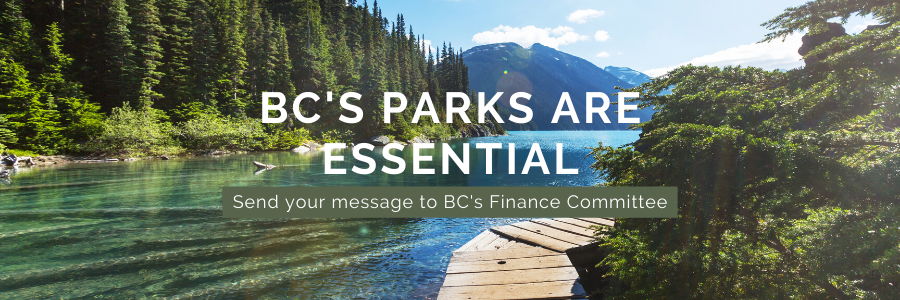
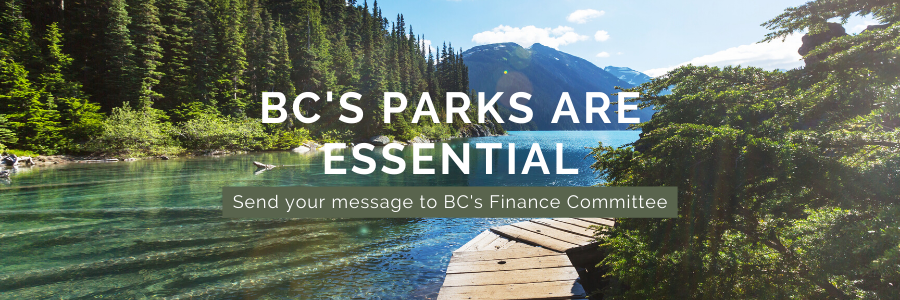
BC Parks deserve a raise!
The COVID-19 public health crisis has shown us just how essential BC’s parks are for our physical and mental well-being. The pandemic has highlighted the urgent need to re-invest in BC’s parks, which have been chronically underfunded since the early 2000’s.
Throughout the month of June, the BC government is collecting feedback on how to set their priorities for next year’s budget. Send your comments by clicking the button below, letting the government know you would like parks to be prioritized with an additional investment of funding.
Our parks and the staff who take care of them are ill-equipped to support an influx of visitors as they gradually reopen. Staff shortages are making it difficult to enforce physical distancing requirements and maintain higher standards of facilities cleaning needed to keep visitors safe.
BC’s parks are in dire need of a funding boost to ensure that they’re able to support.
Click the button to edit your letter. A personalized letter triples your impact so add a personal note at the start of this letter. When you’re done, click send.
Protecting BC’s provincial parks
As British Columbians, we should be proud of the system of parks that has been created to safeguard some of our province’s most beautiful and unique places. From high alpine meadows to towering ancient forests and sweeping grasslands, BC is the most biologically diverse province and our parks steward some of the most spectacular natural wonders on planet earth. But with wildlife facing extinction and our parks facing humans pressures, we need to expand our parks system and give nature the protection it needs.
BC’s provincial parks system is the largest in Canada – but it is also one of the worst funded.

What does this funding crisis look like on the ground?
- Massive shortage of park rangers: in 2016, there were just 7 full-time park rangers responsible for monitoring BC’s millions of acres of park lands. That means that during peak season, each park ranger was responsible for an area roughly two-thirds the size of Vancouver Island. Seasonal hiring has tried to fill gaps, but there’s still chronic understaffing in BC Parks. That means regulations meant to protect nature are left unenforced.
- Doing more with less: with over 20 million visitors per year, BC Parks staff are under enormous pressure. But without adequate funding, they often don’t have enough resources for proper equipment or vehicles that help them monitor our parks.
- Broken and missing infrastructure: tent pads, pit toilets, bridges, paths – these things cost money to build and maintain. Proper infrastructure makes for more enjoyable and meaningful park experiences for visitors, while also providing vital protection to sensitive ecosystems.
- Threats to nature and wildlife: without enough park rangers, sufficient resources, or safe infrastructure, BC’s parks are becoming “paper parks” – protecting in theory but not in practice. That means severe degradation of irreplaceable ecosystems from the influx of visitors and their litter. For wildlife, it means losing habitat and more dangerous interactions that lead to conflict. Without adequate funding, our parks cannot do the job they are legislated to do: protect and conserve wilderness for generations to come.
Parks don’t protect themselves. We can see a better future for BC’s provincial parks and the wilderness that they protect, but only if we stand up and demand action from our government.
